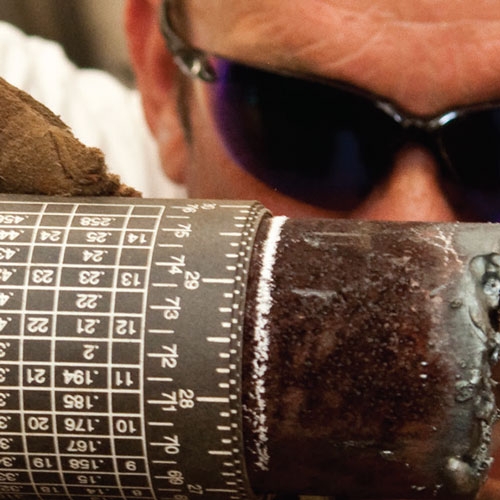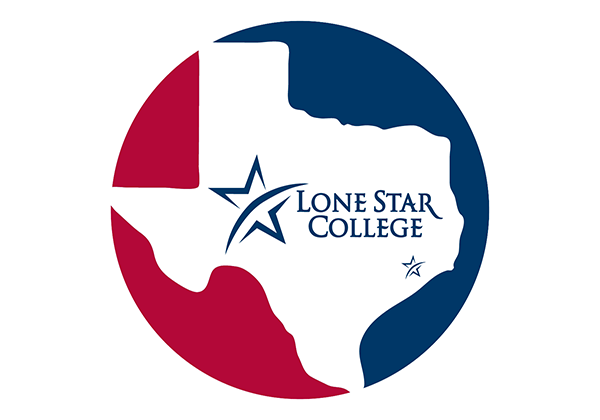Teaching Petrochemical
Leave a Legacy. Teach.
Help us train the next generation of petrochemical workers.
The Texas Gulf Coast petrochemical industry will need more than 50,000 new workers over the next decade — thanks to plant expansions and the retirement of “Baby Boom” generation workers.
Today, 39 percent of all oil and gas jobs are located in Texas, and account for 10.7 percent of all wages in the state. The average salary for petrochemical workers in Texas is $99,700, according to the American Chemical Society.
Community colleges are expanding teaching capacity to train workers for these career positions, but we must have qualified instructors with “real-world” experience in the workforce who are willing to share their knowledge.
Without qualified instructors, these training programs cannot produce graduates fast enough to meet the growing demands for workers, and local industry will be forced to import employees from outside the region, leaving local residents out of this lucrative job market.
The best training for students comes from individuals who have recently worked in these careers and retain knowledge of current procedures and equipment.
Become part of a community partnership that gives back to the next generation through education.
Students who achieve higher levels of education increase their earning potential and employability. They are less likely to have poor health habits, commit crimes, or claim welfare or unemployment benefits. This translates into a happier, healthier, and more economically stable community (American Association of Community Colleges report).

Good teaching cannot be reduced to technique; good teaching comes from the identity and integrity of the teacher.
— Parker J. Palmer
Author, Educator, Activist
What Qualifications Must I Have to Teach?
Do not let the lack of a four-year degree keep you from seeking a full- or
part-time instructional position in a technical program at a community
college.
Qualifications to teach a technical course vary depending upon the
program and type of degree or certification. However, instructors
are required to have a minimum of three-to-five years of recent work
experience, and this experience must be directly related to the teaching
position they hold.
Required for all types of teaching:
- Industry work experience in the subject area
- Passion for the subject
- Willingness to learn through targeted faculty training for new teachers
Required for some types of teaching:
- Industry certifications
- Educational certificates and degrees
- Participation in specialized faculty training
Ongoing professional development and support is available for those
new to teaching. This includes classroom management strategies for
adult learners, student engagement techniques, and program-specific
teaching techniques.

When you study great teachers…you will learn much more from their caring and hard work than from their style.
— William Glassner
The William Glassner Institute
What Positions are Available?
Community colleges need experienced petrochemical and construction trade employees to teach in these areas of study:
Example Programs
- Analyzer Technology
- Computer Maintenance
- Computer-Aided Drafting and Design
- Electrical Technology
- Engineering Technology
- Fieldbus Technology (Instrumentation)
- Instrumentation
- Logistics and Supply Chain Management
- Machine Technology
- Millwrighting
- Pipefitting
- Process Technology (Operator)
- Production Technology
- Welding
Full-time and part-time teaching opportunities are available in short-term contract training, workforce certification programs, and college-credit certificate and degree programs.
Class durations vary from a few days to a full 16-week semester, and class times vary from mornings to evenings. Full-time teaching includes insurance and retirement benefits.

How do I Get Started?
Openings, class schedules, pay and benefits vary at each Texas Gulf Coast Community College.
Before completing the application process, please be aware that for some teaching opportunities, you may be asked to provide additional documents.
Questions about the application process can be answered by the Human Resources office.
For assistance developing a resume, consult these websites:
www.resumegig.com
www.resumegenius.com
www.resume-now.com
For information about the Community College Partnership in Workforce, contact:
Kelly Dando
CCPIW Grant Coordinator
[email protected]
For more information about instruction opportunities, contact:
Alvin Community College
[email protected] • 281.756.3639
Brazosport College
[email protected] • 979.230.3303
College of the Mainland
[email protected] • 409.933.8269
Galveston College
[email protected] • 409.944.1209
Houston Community College
[email protected] • 713.718.8565
Lee College
[email protected] • 281.425.6875
Lone Star College
[email protected] • 832.813.6767
San Jacinto College
[email protected] • 281.998.6115
Wharton County Junior College
[email protected] • 979.532.6947
Hear What Our Students Have to Say!
-
I love what I do. The work and styles are always changing. I’m excited to do something that changes the way people look and feel.
Stylist, The Spa at Hotel Galvez, Galveston College Cosmetology Graduate, ‘18
-
Coming down here changed that. When I first started down here, I didn't know anything about valves, pumps, anything like that, but they're incredibly thorough. They assume you know nothing, and they just build up from that. As a whole, I'd say it's overwhelmingly positive. I really can't think of anything negative to say about it. It's not that hard. If I can do it, you can do it.
Process Technology Student, Lee College









